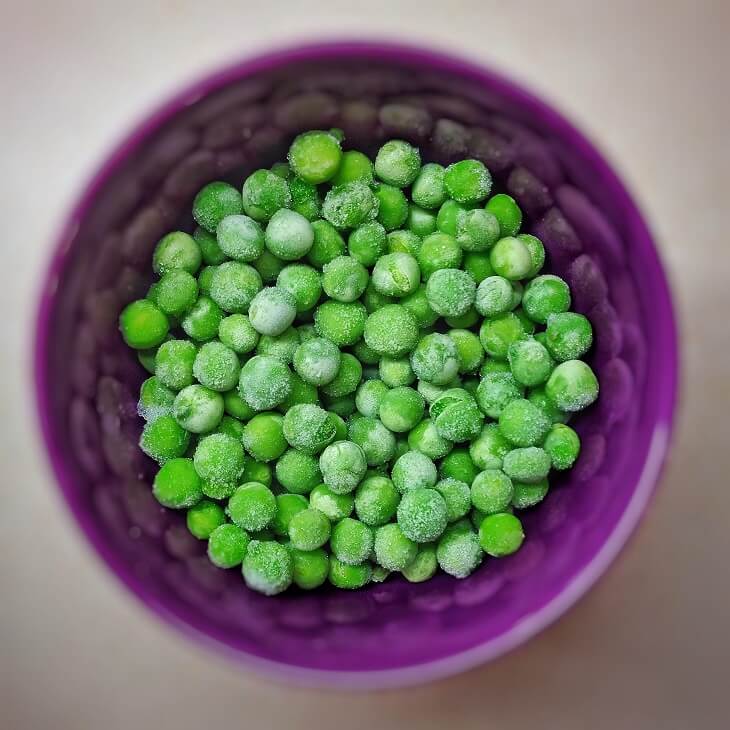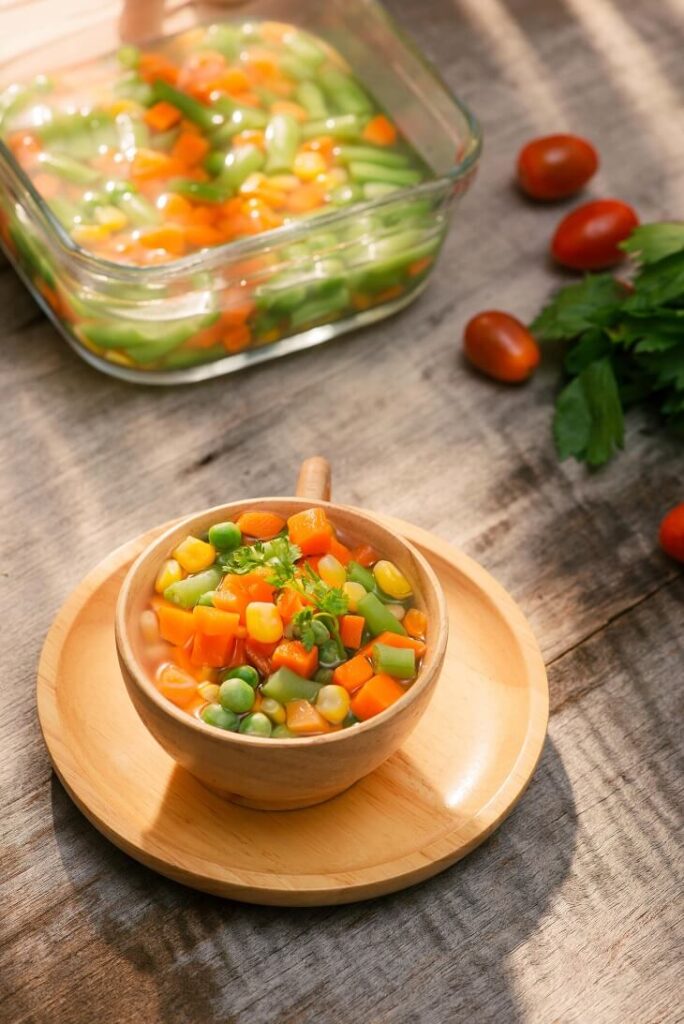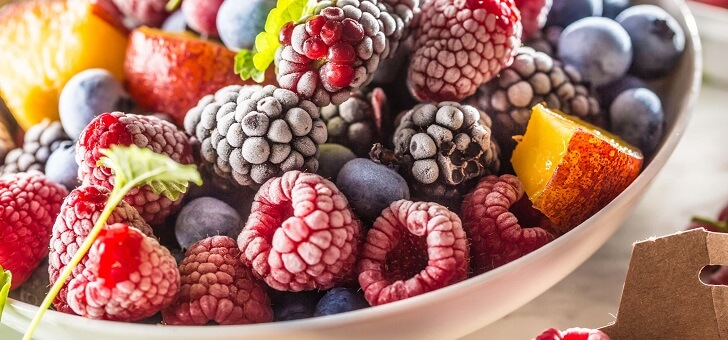Remember back in 2008 when celebrity chef Delia Smith faced a barrage of criticism for suggesting that cooks cut corners with her How To Cheat at Cooking book?
The culinary queen was lambasted for daring to put convenient ingredients such as frozen mashed potato and ready-made pastry in her recipes, when previously she’d insisted that even pepper should be freshly milled at all times.
Now, Raymond Blanc has leapt to Ms Smith’s defence, praising her efforts to “really simplify food”.

“She was heavily criticised for using tinned and frozen food in her recipes, but she was absolutely right,” Mr Blanc told the Radio Times.
“Take the frozen pea. First, it’s delicious – all the nutrients are trapped in. Not quite as good as fresh, but nobody wants to pick and pod peas. If it takes two hours, you’re not going to want to eat it.”
But is the celebrated French chef right? Are frozen fruit and vegetables really less nutritious than the fresh variety?
Read: Nine foods you shouldn’t freeze
“Frozen fruits and vegetables are as healthy as fresh as they tend to be frozen instantly upon picking them so they keep their nutritional value for longer,” says nutritional health coach Holly Zoccolan.
While nutritionist Rob Hobson says there may be some slight variations between the two: “Frozen fruit and veg are usually processed or blanched to destroy bacteria, which may lead to some loss of nutrients.”

In addition, salt and sugar levels may be “slightly higher in frozen fruit and vegetables in comparison to fresh. It’s important to always check the labels of frozen produce to ensure they have no added sugar, salt or other flavourings.”
How the fruit and veg is stored, cooked and eaten can also make a difference.
Ms Zoccolan says: “When fresh vegetables are sat for hours at the grocery store, they slowly lose their nutritional value in comparison to frozen fruit and vegetables which keep fresher for longer.”
So if you’ve got a surplus of fruit or veg you might want to chop and freeze it to preserve the nutrients for later.

Mr Hobson recommends: “Fruits such as apples are best kept in the fridge to ensure they stay fresh for the week. Both the skin and flesh of apples have been shown to contain high levels of polyphenols, specifically flavonoids, which are found in the skin, which is why you should keep the skin on when consuming apples.”
When it comes to meal prep, be careful not to blast or boil vegetables for too long.
“It’s important to ensure that you don’t overcook vegetables so that they keep hold of the nutrients within them,” Ms Zoccolan says. “A light stir-fry, gentle simmer or steaming for a short amount of time helps to ensure the vegetables remain high in their mineral and vitamin content.”
Read: Seven frozen food mistakes
Benefits of frozen fruit and vegetables
The nutrition profile is very similar to fresh produce
Frozen fruit and vegetables are almost like-for-like in terms of nutritional value when compared with fresh. There can be slight variations, but the differences are usually negligible. For example, frozen peas have around 70 calories per 100g compared to 79 calories in fresh peas. Frozen peas have 5.5g protein, 1g fat, 11g carbohydrates and 5.5g fibre per 100g compared to fresh peas, which contain almost 7g protein, 1.5g fat, 10g carbohydrates and 5.6g fibre.
Frozen produce also has similar levels of vitamins and minerals when compared to fresh – it may be slightly lower in some cases, but the differences are minimal. On one hand, frozen peas contain 12mg vitamin C per 100g compared to fresh peas which contain 16mg, but on the other, frozen peas have more calcium at 37mg compared to fresh peas which contain 19mg per 100g.
A healthier way to preserve fresh produce
Freezing is a widely used long-term method of preservation that retains many of the attributes associated with freshness better than other methods of preservation, such as canning and drying.
Freezing fruit and vegetables doesn’t require any preservatives or added ingredients, making it a healthy way of extending the life of fresh produce. However, it’s worth checking labels of commercially frozen produce to ensure they have no added sugar, salt or other flavourings.
They offer out-of-season nutrients year-round
Freezing fresh produce when in season is a valuable way to access nutrients such as vitamin C during the winter months. Studies suggest people who include frozen produce in their diets tend to eat more fruit and vegetables overall.
They are quick to prepare
Frozen fruits and vegies are the ultimate convenience food. They are typically quick to prepare with minimal wastage. There’s usually no washing, peeling or chopping involved, which is what you’re looking for when thinking up a quick, healthy meal.
Read: Simple tips for reducing your food waste at home
Cheap and easy to measure
Frozen produce is typically cheaper than its fresh equivalent, especially out of season. It’s also easier to measure out the exact amount you will eat and put the rest back in the freezer rather than trying to come up with three meals in a row that all involve cauliflower.
Do you use frozen fruit and veg at home? What are your reasons for or against? Let us know in the comments section below.
– With PA
If you enjoy our content, don’t keep it to yourself. Share our free eNews with your friends and encourage them to sign up.

